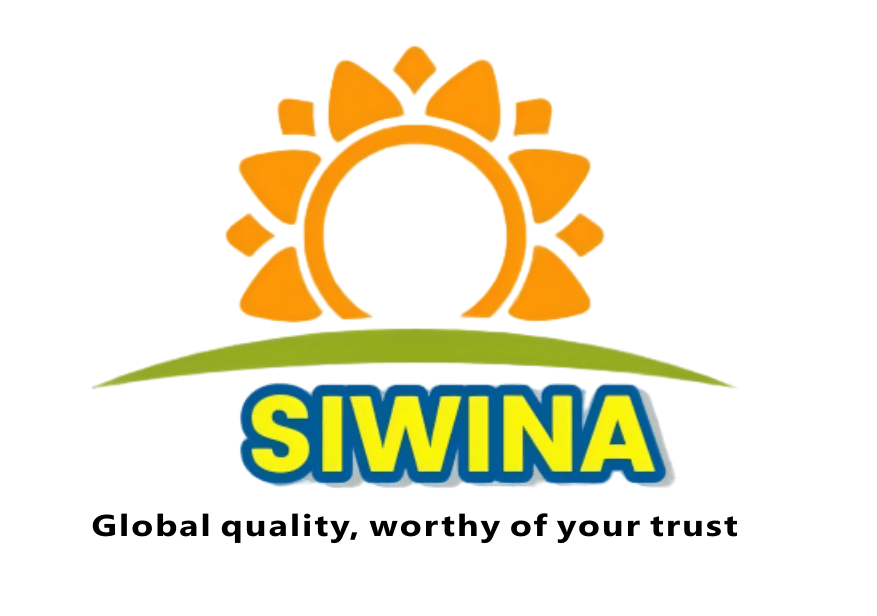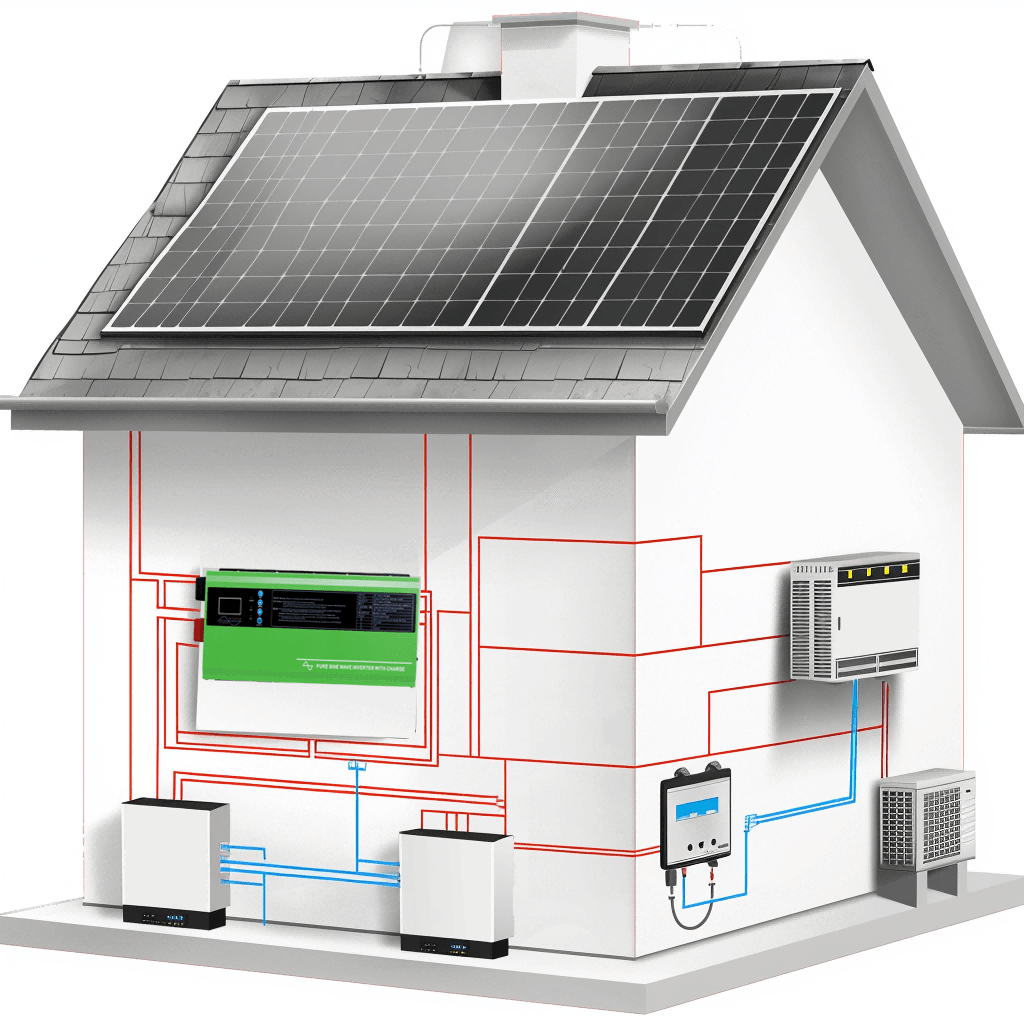What is the importance of solar inverters in solar power generation systems?
In the realm of solar power systems, the inverter is often considered the heart of the entire setup. This critical component performs the essential function of converting direct current (DC) generated by solar panels into alternating current (AC), which powers household appliances and can be fed back into the electrical grid. The conversion from DC to AC is imperative for the functionality of most modern devices and the integration of solar energy into the conventional power grid.
A high-quality solar inverter markedly contributes to the overall efficiency of energy conversion. Different inverters come with different levels of efficiency, and choosing one that maximizes performance can result in significant energy savings. The reduction of energy loss during the DC to AC conversion process ensures that more of the captured solar energy is effectively utilized. This functional efficiency translates to stable and reliable power delivery, which is pivotal for maintaining the operational integrity of household appliances.
Beyond its role in energy conversion, the inverter is pivotal for ensuring the safety and durability of the solar power system. It manages the energy flow, stabilizing the voltage and current to prevent fluctuations that could damage sensitive electronic equipment. Some advanced inverters are equipped with monitoring capabilities, providing real-time data on energy production and consumption, which aids in effective system management and maintenance.
The importance of a solar inverter extends to enhancing the lifespan of the solar power system. A robust and reliable inverter minimizes the wear and tear on system components, thereby prolonging their service life and reducing the need for frequent replacements. This durability underscores the value of investing in a high-quality inverter, as it plays a crucial role in the long-term sustainability and economic viability of the solar power system.

What are the Factors to Consider When Choosing a Solar Inverter?
Choosing the right solar inverter is a critical decision that can significantly impact the efficiency and reliability of your solar power system. One of the foremost considerations is compatibility with solar panels and battery storage systems. The inverter must align with the voltage and current specifications of the solar panels to maximize energy capture and utilization. Furthermore, if integrating a battery storage system, ensure the inverter supports bi-directional flow to efficiently charge and discharge the battery.
An essential aspect of solar inverters is their conversion efficiency. This refers to the proportion of direct current (DC) that the inverter can convert into alternating current (AC) without substantial energy loss. Higher efficiency ratings translate to more power being generated from the same array of solar panels. It’s advisable to opt for inverters with efficiencies of 95% or above to boost overall system performance.
Quality certifications are another key factor. Certifications such as CE (Conformité Européenne) and UL (Underwriters Laboratories) are reliable markers of an inverter’s adherence to international safety and quality standards. These certifications ensure that the inverter not only performs efficiently but also operates safely under your specific environmental conditions. They are indispensable in confirming the operational legitimacy of the inverter you’re considering.
Lastly, the brand and available after-sales services are crucial elements in your decision-making process. Reputable brands with a proven track record often provide more reliable products and better customer service. Look for manufacturers that offer comprehensive warranties and robust technical support. It is also beneficial to check user reviews and service ratings to gauge the reliability and responsiveness of the after-sales service.
Incorporating these factors will help ensure that you select a solar inverter that not only meets your power generation needs but also provides long-term reliability and support.
The Role of Quality System Components in Ensuring Stability
Choosing high-quality solar panels and inverters is paramount in achieving a stable and efficient solar power system. Solar panels are the fundamental building blocks of any solar energy system, and their performance guarantees significantly impact the overall output. High-quality solar panels are designed to withstand adverse weather conditions, ensuring durability and longevity. They should come with warranties that typically span 25 years or more, reflecting their robustness against various environmental stresses, including strong winds, heavy snowfall, hail, and scorching temperatures.
The inverter, often referred to as the heart of a solar power system, plays a critical role in converting the direct current (DC) generated by solar panels into alternating current (AC) usable by homes and businesses. An inverter with essential protection features such as overload protection, short-circuit protection, and overheating protection is vital for maintaining user safety and preserving system integrity. Overload protection prevents the system from drawing more current than it can handle, short-circuit protection guards against potential electric faults, and overheating protection ensures that the inverter operates within safe temperature ranges.
The importance of choosing quality components cannot be overstated as it directly affects the system’s resilience and reliability. Inferior quality components may operate efficiently for short periods but are prone to failures that can result in significant downtime and costly repairs. Conversely, investing in premium solar panels and inverters not only ensures consistent performance but also minimizes the risk of malfunctions and enhances the overall lifespan of the system.
Ultimately, quality components are essential for mitigating risks and achieving long-term, stable solar power generation. They offer peace of mind, knowing that the system will perform reliably under a wide range of conditions, ensuring a continuous and safe energy supply. The integration of high-grade materials and advanced technologies in these components is crucial for maintaining stability, optimizing performance, and delivering superior energy efficiency.
Common Problems and How to Avoid Them with Quality Choices?
When selecting inverters and solar panels, the quality of these components is paramount. Inferior products often lead to several common problems that can compromise the efficiency and safety of your solar energy system. One critical issue associated with low-quality inverters and panels is power loss due to inefficient energy conversion. Substandard inverters can lead to significant energy wastage, reducing the overall output of your solar panels and affecting the return on your investment.
Furthermore, system failures are another prevalent issue with inferior products. Low-quality inverters and panels are more prone to malfunctions, which can result in frequent breakdowns and system downtimes. This not only increases maintenance costs but also disrupts the consistent energy supply from your solar system. Over time, the cumulative costs of such repairs and replacements can far exceed the initial savings from choosing cheaper components.
Safety risks, such as electrical fires, are an even more severe consequence of opting for low-quality solar inverters and panels. Poorly made components may not meet stringent safety standards, leading to overheating and potentially hazardous situations. Ensuring the safety of your solar energy system should always be a priority, as electrical mishaps can have dire consequences for both property and personal safety.
The key to avoiding these issues lies in selecting high-quality, certified products. Reputable manufacturers provide thorough product specifications and often include certification information confirming adherence to industry standards. These certifications not only attest to the quality and efficiency of the components but also assure their safe operation.
Moreover, detailed installation and maintenance guides are essential for ensuring the proper setup and upkeep of your solar energy system. High-quality products typically come with comprehensive manuals that outline best practices for installation and maintenance, helping to prolong the lifespan of the system and maintain optimal performance.
By prioritizing quality and carefully reviewing product certifications and guidelines, you can ensure a reliable and efficient solar energy system, safeguarding both your investment and safety.
Siwina’s stable quality and reliable solar inverters and solar systems have CE, FCC, and ISO9001 certifications.

